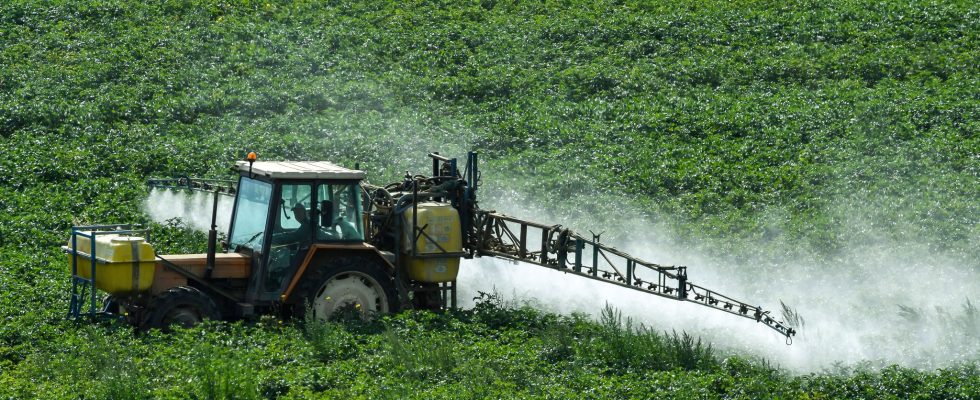Two months after the publication of a report estimating that the level of risk does not justify banning glyphosate, the European Commission proposed, this Wednesday, September 20, to renew for ten years the authorization of the controversial herbicide in the EU, under conditions. The European executive’s proposal will be examined on Friday by representatives of the 27 member states, who will then have to validate it by a qualified majority during a vote on October 13.
The current authorization of glyphosate in the EU, renewed in 2017 for five years, expired on December 15, 2022, but was extended by one year pending a scientific evaluation. Beginning of July, the European Food Safety Authority (EFSA) had released its report, saying it had not identified any “critical areas of concern” in humans, animals and the environment that would prevent the herbicide from being authorized.
The Commission proposes to authorize glyphosate until December 15, 2033, i.e. for a period twice as long as the previous authorization, but short of the 15-year period initially planned. The green light may, however, be revised at any time if new evaluations warrant it.
Scientific debate
Brussels establishes some safeguards: the conditions of use must therefore be accompanied by “risk mitigation measures” concerning the surroundings of the sprayed areas, via “buffer strips” of five to ten meters and equipment drastically reducing ” spray drifts”. Limit levels are set for certain “impurities” from glyphosate, and use for desiccation (spreading to dry a crop before harvest) is now prohibited.
Glyphosate, the active substance in several herbicides – including the famous Monsanto Roundup, widely used around the world – was classified in 2015 as a “probable carcinogen” for humans by the International Agency for Research on Cancer of the World Organization. of health. Conversely, the European Chemicals Agency (ECHA) ruled last year that the available scientific evidence did not allow it to be classified as a carcinogen.
For its part, the EFSA had simply noted in July “a high long-term risk in mammals” for half of the proposed uses of glyphosate, but recognized that the lack of data prevented any definitive analysis. To take this into account, the Commission largely relies on the States, responsible for issuing authorizations at national level and setting the conditions of use, to “pay particular attention” to the effects on the environment.
States will be required to examine “co-formulants” (other components present in authorized herbicides), to evaluate the exposure of consumers to “residues” potentially present in successive crops grown in rotation, and to ensure the protection of groundwater or surface water, particularly that used for the collection of drinking water.
Likewise, States will have to “pay attention” to the impact on small mammals, by considering “if necessary” mitigation measures or restrictions. If they identify potential indirect effects on biodiversity, they will have to examine whether other methods of crop protection are possible, and may adopt restrictions there too.
“Irresponsible”
Recommendations considered very insufficient by MEPs: Pascal Canfin, president (Renew, Liberals) of the parliamentary Environment committee, deplores the absence of “serious restrictions on use” and denounces an “unacceptable proposal”, “not in conformity with the conclusions of the EFSA which highlights many gray areas”. “By destroying biodiversity, glyphosate endangers our long-term food security. This proposal is irresponsible,” added Greens elected official Benoît Biteau. “Industrial interests clearly take precedence over health and the environment,” said the environmental organization PAN Europe.
This proposal comes as negotiations between Member States and in the European Parliament are bogged down on an ambitious draft legislation imposing binding pesticide reduction targets in the EU, within the framework of the Green Deal.
If the authorization of glyphosate as an active substance is renewed at EU level, it will then be up to each State to authorize products containing it, regulating their use “when justified” according to crops and climatic conditions. and local specificities, specifies a European official. “In extreme cases, States can theoretically ban all products containing glyphosate”, but must have solid justifications for this “within the framework of the conditions” mentioned in the text, he adds. Luxembourg had banned the marketing of glyphosate at the end of 2020 before the courts forced it in 2023 to lift this ban.
